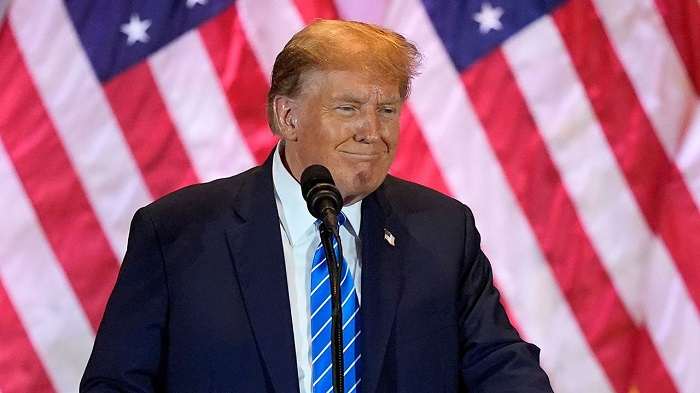The Republican Party Primary System: An Overview
Before diving into Alaska’s role, it’s essential to understand how the Republican Party’s primary process works. The primaries are the first step in selecting the party’s nominee for the general election. The process is a series of state-by-state elections and caucuses where Republican voters cast their ballots for their preferred candidate. Delegates from each state are then allocated to candidates based on the results, and the candidate who earns the majority of delegates is declared the Republican nominee.
Alaska’s Unique Role in the Primary Process
Alaska, while not typically considered a political powerhouse in terms of electoral votes in the general election, can have a significant impact during the primaries. With only three electoral votes in the general election, the state might seem like a minor player. However, the state’s small but dedicated electorate makes the Alaska Republican Primary one to watch.
Alaska’s primary is often seen as a bellwether for candidates who can resonate with more conservative and independent voters. The state’s libertarian-leaning population, along with its unique challenges—such as energy policy, climate issues, and indigenous rights—force candidates to tailor their platforms in ways that they might not have to in other states.
The 2024 Republican Field: Who’s Running?
The 2024 Republican field is a crowded one, with several prominent figures vying for the GOP nomination. Some of the major contenders in the Republican Party primary include:
- Donald Trump: The former president is aiming for a political comeback, seeking the Republican nomination for the third time. Despite his controversial presidency, Trump maintains a loyal base of support, and his influence on the Republican Party remains significant.
- Ron DeSantis: The Florida governor has emerged as a prominent figure in the Republican Party, advocating for conservative policies and positioning himself as a strong alternative to Trump. DeSantis’ handling of COVID-19, along with his stance on cultural issues, has garnered attention from conservatives nationwide.
- Nikki Haley: The former U.S. Ambassador to the United Nations and Governor of South Carolina is running as a candidate focused on a new direction for the party. Haley has emphasized the need for strong foreign policy and a more inclusive GOP that can appeal to a broader range of voters.
- Mike Pence: As the former vice president under Trump, Pence is aiming to strike a balance between Trump’s policies and a more traditional Republican platform. His focus on Christian values and limited government has positioned him as a candidate for the party’s more evangelical wing.
- Tim Scott: The Senator from South Carolina has gained attention for his optimistic vision for the country, focusing on economic opportunities and social conservatism. Scott’s unique voice as an African-American conservative could resonate with a wider Republican audience.
- Vivek Ramaswamy: A successful entrepreneur and political newcomer, Ramaswamy has focused on tackling the influence of “woke capitalism” and reviving American exceptionalism. His outsider status could be an advantage for voters looking for fresh leadership.
Key Issues for Alaska Republican Voters in 2024
Alaska’s voters have their own set of concerns that may differ from those in other states. Here are the key issues likely to shape the 2024 Republican Primary in Alaska.
Energy and Oil Development
Alaska’s economy is heavily dependent on the energy sector, particularly oil and natural gas. The state’s vast oil reserves have been a critical source of revenue for decades, but with climate change concerns and shifting energy policies under the Biden administration, Alaska’s energy future is uncertain.
Republican voters in Alaska are particularly interested in candidates who support increased oil production, particularly in the Arctic National Wildlife Refuge (ANWR), which has been a longstanding political battle. Candidates who propose expanding drilling and reducing regulations on the oil industry are likely to find support among Alaska Republicans.
Climate Change and Environmental Policy
While energy development is a crucial issue, Alaska is also on the front lines of climate change. The state is experiencing faster warming than most of the U.S., leading to melting permafrost, coastal erosion, and changing wildlife patterns.
Balancing economic growth with environmental preservation is a delicate issue for Alaskans. While many voters support oil development, they are also increasingly aware of the impacts of climate change on their state. Republican candidates will need to address how they plan to balance these competing concerns to gain traction in Alaska.
Indigenous Rights and Rural Development
Alaska is home to a significant indigenous population, and the relationship between the federal government and Native communities remains a critical issue. The state’s rural areas, often inhabited by Native Alaskans, face unique challenges such as access to healthcare, education, and infrastructure.
Candidates who engage with indigenous leaders and offer policies aimed at improving conditions in rural Alaska could gain a significant advantage. This issue requires a nuanced approach, as it touches on broader themes of federalism, state rights, and local governance.
Gun Rights and Libertarian Values
Alaska has one of the highest rates of gun ownership in the U.S., and gun rights are a deeply personal issue for many voters. The state’s rugged landscape and reliance on hunting for both sport and subsistence mean that any perceived threat to the Second Amendment is likely to be met with resistance.
Republican candidates who strongly defend gun rights and emphasize libertarian values of individual freedom and limited government are likely to resonate with Alaska’s voters. The state’s culture of self-reliance and skepticism of federal overreach is a defining feature of its political landscape.
Immigration and Border Security
While Alaska is far removed from the southern U.S. border, immigration and border security remain important issues for Republican voters in the state. Alaskans, like many Republicans across the country, are concerned about illegal immigration and the security of the nation’s borders.
Candidates who advocate for stronger immigration policies, including border wall construction and increased enforcement of immigration laws, are likely to gain support in Alaska. Additionally, with the state’s proximity to Russia, concerns about national security, particularly regarding foreign threats, could also influence voter preferences.
Alaska’s Primary: A Test for Republican Candidates
Alaska’s Republican primary is set to be an intriguing test for GOP candidates. With its unique issues and voter base, the state offers a snapshot of how candidates can appeal to the broader Republican electorate while addressing state-specific concerns.
Trump’s Influence
Former President Donald Trump continues to wield significant influence within the Republican Party, and Alaska is no exception. His loyal base of supporters, energized by his populist rhetoric and policies during his presidency, could give him an edge in the state. Trump has previously done well in Alaska, and his message of “America First” could resonate with voters concerned about energy independence and border security.
However, Trump’s polarizing nature may also be a drawback for some voters in the state. Alaskans, particularly those who lean libertarian, may prefer a candidate who embraces Trump’s policies without the baggage of his controversies.
DeSantis’ Challenge
Florida Governor Ron DeSantis has emerged as a serious contender for the Republican nomination. His handling of COVID-19, particularly his stance on keeping Florida’s economy open during the pandemic, has earned him praise from conservatives nationwide. In Alaska, where many voters prize individual liberty, DeSantis’ approach to governance may find a receptive audience.
DeSantis will need to demonstrate that he understands Alaska’s unique issues, particularly regarding energy and indigenous rights, to win over voters. His ability to appeal to both Trump loyalists and more traditional Republicans could be the key to his success in the state.
The Role of Pence, Haley, and Scott
Other candidates like Mike Pence, Nikki Haley, and Tim Scott will need to carve out their own lanes in Alaska’s primary. Pence’s appeal to evangelical voters could resonate in parts of the state, while Haley’s focus on strong foreign policy and Scott’s optimistic message could attract moderate Republicans.
Ultimately, the challenge for all candidates will be balancing the need to address national issues with Alaska’s specific concerns. Those who can effectively communicate how their policies will benefit Alaskans are likely to gain the upper hand in the state’s Republican primary.
Related Post:
Understanding Psalm 5:9-13: A Reflection on Divine Justice and Protection
North Coast Music Festival: A Vibrant Celebration at SeatGeek Stadium
Al Ain vs. Al-Nassr: A Thrilling Clash in Arabian Football
While Alaska’s small population and limited number of delegates may not seem significant in the grand scheme of the Republican primary, the state’s unique political landscape and its libertarian-leaning electorate make it a key battleground. Candidates who can resonate with Alaska’s voters, particularly on issues like energy, climate change, and individual freedoms, will have a strong chance of success.
As the 2024 Republican primary unfolds, Alaska will serve as a microcosm of the broader challenges facing the GOP. The state’s voters will be looking for a candidate who can lead on national issues while understanding the distinctive needs of their home. For the candidates, winning Alaska may not guarantee the nomination, but it could provide a critical boost in their path to the White House.



